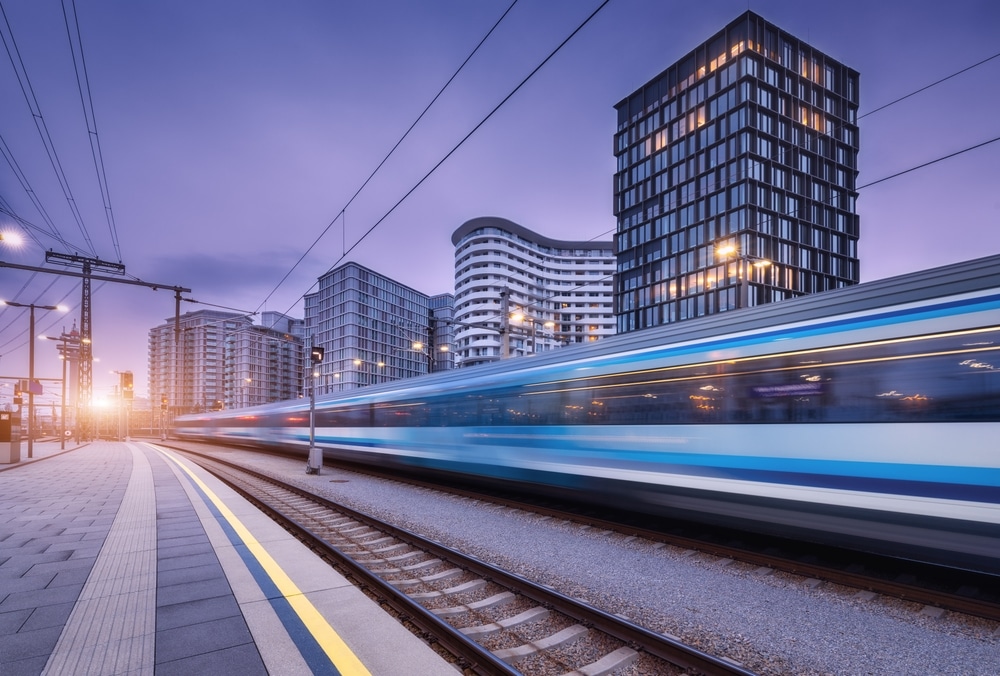UK rail “supercommuters” double in hybrid working era, blurring lines with business travel | RailBusinessDaily

New research from Trainline Partner Solutions reveals the number of UK “supercommuters” using rail to travel longer distances to work has doubled since COVID. Almost half (47 per cent) of current supercommuters surveyed made the lifestyle change either during or post-pandemic, and over four in five (84 per cent) of these new supercommuters say hybrid working has enabled their switch in commuting habits.
The survey of 1,000 rail supercommuters, defined as journeys to work of at least 90 minutes, found that supercommuters are still regulars at their desks – spending an average of three days a week in the office. Lifestyle considerations are key to these employees deciding to undertake a longer commute, such as achieving a greater work-life balance (34 per cent), a reduced cost of living (29 per cent), and more opportunities for their family (29 per cent).
The top destination for most super commuters (27 per cent) is London,* but the phenomenon can be seen across the country with other popular cities including Manchester (6 per cent), Nottingham (5 per cent), and Birmingham (5 per cent).
The rise of supercommuting blurs the once clearer lines between business travel and commuting – two thirds of those surveyed see their commute as closer in definition to business travel. The data also shows that over three quarters (80 per cent) tie their office trips into specific business purposes. While the majority (78 per cent) of these rail supercommuters typically make their journeys in one day, over half (57 per cent) said their company pays for accommodation when it’s required. For many (59 per cent), their company will cover their travel.
Trainline also surveyed a group of 1,000 regular UK commuters to assess the potential growth in the number of rail supercommuters. Just over half (51 per cent) said they would be open to supercommuting in the future, with achieving a better work-life balance the number one motivation (63 per cent). The vast majority of this number (84 per cent) would be willing to spend at least 75 minutes on the train.
Alice Coverlizza, VP of Trainline Partner Solutions, added: “With rail driving a growth in supercommuting, this is redefining what the traditional commute looks like, particularly in relation to business travel. The lines between these two categories are becoming increasingly blurred. The commute is a key part of ever-evolving working patterns in the UK, and these findings highlight the need for both workplaces and the broader travel ecosystem to keep apace of these trends.”
Related
Calls for over 60 free bus travel update from Department…
Calls for free bus travel for those over the age of 60 in England is gaining more attention after an increase of support. Unlike those in Wales, Scotland, and N
Major UK train station is one of the worst places…
Pickpockets are a problem across the UK, but one place is the worst for having your belongings stolen. According to the British Transport Police (BTP), just und
UK Snow Travel Chaos: Kent, East Sussex, West Sussex, Hampshire,…
UK Snow Travel Chaos: Kent, East Sussex, West Sussex, Hampshire, Wiltshire, Surrey, Berkshire, Greater London, Essex, Suffolk, Hertfordshire,
‘Only travel if necessary’ warning as UK’s busiest motorway shut…
NATIONAL Highways have issued an urgent warning to drivers as one the UK's biggest motorways shuts for the weekend. They has urged drivers to re-plan their rou











